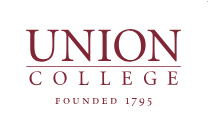Digging Deeper Enslavement in NY panel
Title
Digging Deeper Enslavement in NY panel
Transcript
Historians estimate that almost a fifth of colonial New York’s population was enslaved. Albany and Schenectady were no different. When Union College was founded in 1795, Schenectady had about 450 enslaved residents. These enslaved people toiled on small farms, worked in shops, and carried out work requested by their masters. New York merchants made fortunes trading crops such as tobacco, sugar, and indigo—all produced from enslaved labor. Early colonial New York Dutch merchants also lined their pockets from the slave trade.
Several founders of Union College were among the largest slave holders in the region. Major General Philip Schuyler (pronounced SKY-LER), a principal founder of Union College, was from the prominent Schuyler family who owned hundreds of enslaved people well into the 19th century. Aside from his role in founding Union College, Major General Philip Schuyler is also remembered as a hero of the American Revolution and father-in-law to Alexander Hamilton (his daughter was Eliza Hamilton). However, for those he enslaved, Schuyler may simply have been known as “Master.”
U.S. Census records for 1790 show that Albany had a total population of just under 3,500 people—572 of whom were enslaved individuals. The census also indicate that Major General Philip Schuyler owned from eight to 13 enslaved people at both his Albany mansion and Saratoga estate.
In his 1800 letter written to his youngest child, Catherine, Major General Schuyler give advice on travel and assigns “Anthony” to accompany her on an upcoming trip. While the letter does not indicate Anthony as enslaved, 1804 manumission records have shown that after the Major General’s death in 1803, he granted freedom to a slave named Anthony. It is very likely this is the same man Schuyler mentions in the letter.
Although historical records are limited regarding previously enslaved New Yorkers and their descendants, the existence of freed slave Anthony Schuyler (it was common practice to assume the surname of a slaveholder’s family) is well documented through the late 20th century.

